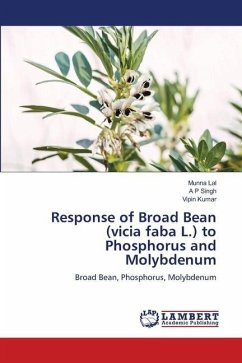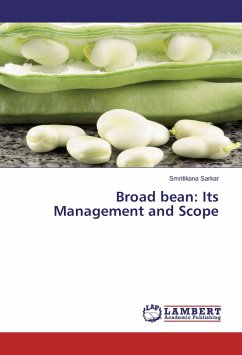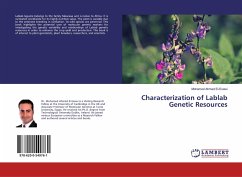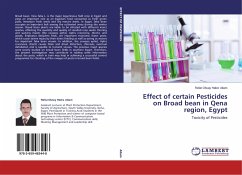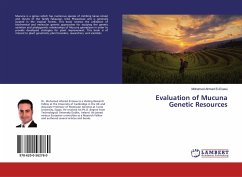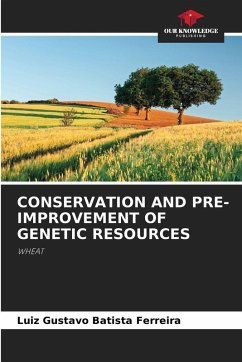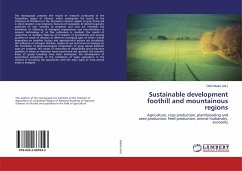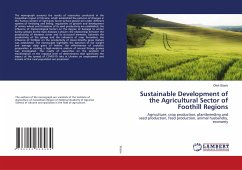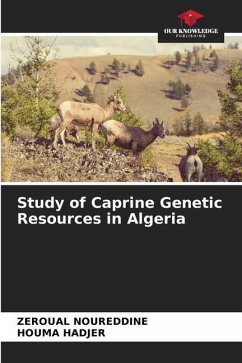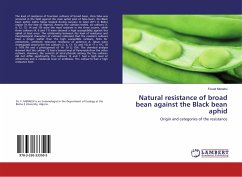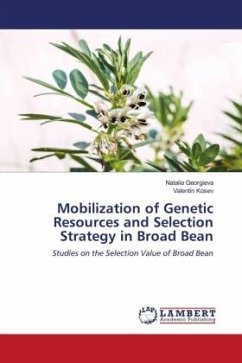
Mobilization of Genetic Resources and Selection Strategy in Broad Bean
Studies on the Selection Value of Broad Bean
Versandkostenfrei!
Versandfertig in 6-10 Tagen
45,99 €
inkl. MwSt.

PAYBACK Punkte
23 °P sammeln!
The evaluation of the genetic diversity and performance of main traits and parameters in Vicia faba accessions was conducted under the Central Northern Bulgaria conditions. Positive correlations with different values were established between seed productivity and quantitative traits, which implies an opportunity to improve productivity through the studied characteristics. Using different approaches, analyses (regression, variance, non-parametric) and methods (according to Wricke, 1965; Eberhart and Russell, 1966; Shukla, 1972; Tai, 1979; Plaisted and Peterson, 1979; Annicchiarico, 1992; Yan, 2...
The evaluation of the genetic diversity and performance of main traits and parameters in Vicia faba accessions was conducted under the Central Northern Bulgaria conditions. Positive correlations with different values were established between seed productivity and quantitative traits, which implies an opportunity to improve productivity through the studied characteristics. Using different approaches, analyses (regression, variance, non-parametric) and methods (according to Wricke, 1965; Eberhart and Russell, 1966; Shukla, 1972; Tai, 1979; Plaisted and Peterson, 1979; Annicchiarico, 1992; Yan, 2002 and others), the productive potential, ecological stability and adaptive ability of accessions were determined. The allelopathic potential assessment of the genotypes allowed identifying those with pronounced allelopathic tolerance to Sorghum halepense, a major weed in broad bean stands. Based on the complex estimation, a breeding model of broad bean cultivar with an increased productivity was developed. The evaluation of source material through genetic-physiological systems allowed selecting appropriate parental forms which are characterized by high productivity and adaptive ability.



